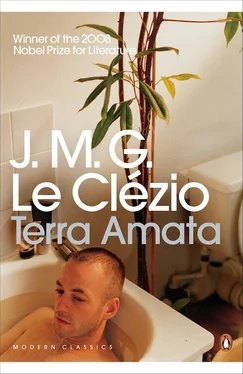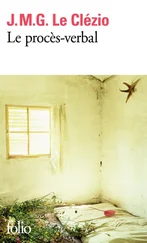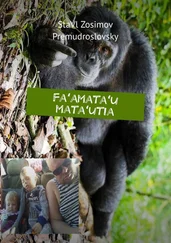All cataclysms and all wars were there in the squashed bodies of the potato-bugs, in their scattered entrails, in the thick red liquid spattered over the sharp bars of the grille.
The avalanche had fallen silently, engulfing the tiny bodies in its tons of white powder. In the quiet night, for no reason, the dam had burst and the slimy flood of mud and water hurled itself on the village, knocking down houses, uprooting trees, filling the mouths and nostrils of sleeping men, women and children.
Or else war had burst over the captive town. There’d been one enormous flash and in a second the blinding wave had blown millions of living creatures to atoms. And now there was this sort of wound or cancer on the earth that would leave a scar for ever. A few things still stood upright around the churned-up crater: walls a thousand years old, half-burned telegraph-poles, old scraps of metal, bits of brick inscribed with the shadow of a man now vanished into thin air.
It was all these things at once that had just taken place here on this concrete path, with these steps, and this boy, and this scraper, and these potato-bugs. One more murder, just one more murder. And already it was forgotten.
The boy collected up all the potato-bugs that were still alive and put them in an empty match-box he’d fetched from the kitchen. Then he swept up the corpses and threw them on the grass.
In the match-box there were six potato-bugs: Antis, Goliath, Vélo, Ajax, Potato and Bug. Chancelade went and sat on the top step with his back against the kitchen door and played with them. He tried to teach them tricks. He tried to teach them to fight. He tried to make them walk along two by two and play football with a paper pellet. He tried to feed them. But it was no use. They wouldn’t see. Every now and again Chancelade would hold one of them in his hand and feel the little feet walking over his skin and the jaws nibbling at his fingers.
When, when he’d had enough, he went and got a match from the kitchen and set light to the box. And so died Antis, Goliath, Vélo, Ajax, Potato and Bug, sole survivors of the great massacre that took place that day among the potato-bugs.
You could try to express what bliss it was in those days to be alive. Of course there were bothersome things here or there. Terrible things, if you looked too closely. There was the dreadful burden of everything that’s too much alive, all that mingles with air, earth and water in an attempt to destroy you. There was the malice of men, the voracity of beasts, and the indifference of objects. There were all the sounds and sights and smells like continual dagger-thrusts in the flesh. It wasn’t easy to live with all those things; no, no one could have said it was easy. But all the same it was funny in a way, touching and funny, a splendid adventure complete with emotion, language, consciousness, and perhaps, in some recess of the memory, a kind of nostalgia for silence and peace.
Yes, what was happening to you was an unforgettable and unique adventure. No one else would ever know about it, and no one would ever really want to know. And yet you had been there one day on the earth, a living man. You’d learned to walk and talk and eat and read and write. You’d smiled for the first time. You’d begun to love, or hate. You’d tried to understand, you’d looked at the sky, the clouds, the sun, the yellow flowers. You’d waved your arms about. You’d been afraid. And all this hadn’t happened to somebody else: it all concerned you, it was you it was all about. Your face. Your skin. Your hair and nails and tufts of whiskers. Your brain. Your inside, your heart. Your hands, your arms, your legs, your ankles, your elbows. Whatever happens now, whatever the outcome of this too long story, you can’t pretend it wasn’t you. You can’t avert your eyes or skip the pages or shut the book and do your nails with a little pocket-file. It won’t wash. Other people might believe you’d forgotten, but not you. You can’t get away from yourself. You must live, and go on living. You must go on reading the picture-book that tells your story, like this, right to the very end.
It’s an interesting story because it’s about you. You could even say it’s the only interesting story you’ll ever come across. You get up from the bed you’re lying on or the chair you’re sitting in. You walk up and down the room, you look out of the window at what’s going on in the street or the garden. Then you come back into the middle of the room and pretend to light a cigarette with a match or maybe a lighter. Or you undo the cellophane wrapping round a mint and put it in your mouth. You scratch your left ear. If there’s someone else in the room, your wife for instance, you say:
‘What’s the time?’
‘What?’
‘I asked what the time was.’
‘Ten past five.’
‘Shall we go for a walk?’
‘Where to?’
‘Oh? I don’t know. I thought we might—’
‘But we have to be here at six.’
‘Oh yes, of course.’
‘And look at the weather.’
‘Yes, it’s going to rain.’
‘Don’t you want to read any more?’
‘No.’
‘Is it any good?’
‘We-e-ell.’
‘I bought a very good detective story the other day when I was out with Annie.’
‘What’s it called?’
‘The book? — Along the Dotted Line .’
‘Who’s it by?’
‘I can’t remember — an American, I think, or perhaps an Englishman. It’s about a chap that sends people letters with typhoid germs all over them. Good idea, eh?’
‘Not bad … And you can’t remember the name of the author?’
‘Bowling, Rowlins, something like that.’
‘Never heard of him.’
‘Or perhaps it was a German called Reuter.’
‘Oh?’
‘I was with Annie. We were walking along the street because she had an appointment with—’
‘What about going to the cinema?’
‘Eh?’
‘What about going to the cinema this evening?’
‘What’s on?’
‘Nothing special, I don’t think.’
‘The cinema every evening — I’m beginning to get fed up with it.’
‘What else would you like to do? I suppose you’re not suggesting we go to the theatre?’
‘Are you joking?’
‘No, but seriously, why not?’
‘If you can’t think of anything else do a crossword puzzle. I’ve got work to do.’
‘If we only had a telly it’d be something.’
‘It was you who were against it it. You said it made you seasick.’
‘Yes, if you watch it every evening.’
‘You would watch it every evening.’
‘Not necessarily.’
‘I know you.’
Then you light another cigarette. You breathe out blue smoke through your mouth and grey through your nostrils, in little puffs. You pick up a magazine and flick through the pages, looking at the photographs and the captions, the advertisements for brassières and corsets, the advertisements for cars and refrigerators and milk chocolate and nut milk chocolate. You look at the dim photographs with girls smiling and climbing out of cars revealing sun-tanned thighs, girls running along beaches in skin-tight blue and orange swimsuits, their long hair blown across their faces in the wind and sunshine. You look at all this in silence, not happy, when really you ought every second to rush out into the street and carve in the bark of every plane-tree, scrawl on every wall and on every sidewalk:
JUNE 11, 1966
I AM ALIVE
But that wouldn’t be enough. You’d need to be everywhere at once, on the tops of the mountains when the Northern Lights appear, at the bottom of the sea for the silent explosions of volcanoes, inside the trunks of trees when the rain begins to plop gently down on every leaf. You’d need to be there in the midst of war, stretched out in the mud when all the bombs whistle down together and dig their black craters in the fields. Or rushing along inside a jet-plane, not thinking, filled with the blind imperative that orders you to kill and kill again. You’d need to be there at every accident at every intersection, and walk through the shattered glass and pools of petrol looking at the bodies lying in the road covered with white blankets. You’d need to be able to think everything, speak everything, try to understand everything. To imagine every town lying in the curve of a valley under a sky cloudy or clear, with every river sending its muddy waters under the spans of the bridges. You’d need to be able to live everywhere, your whole life through, with a wife and three or four children, friends, a car, a dog, a cinema, a house of your own. In Dar-es-Salaam for example, right in the terrible heat reflected back off the brick walls. Or in Agrigentum, a prisoner of the chalk-coloured mountain, while the flies buzz through the heavy air. In Lima, crushed by the never-ending drought, or Bristol, breathing in factory-smoke and fog strewn through the dark air. In Sherbrooke in the stifling snow; in Gorman, California, away in the depths of darkness. In Hamburg, Calcutta, Syracuse. You’d need to live a long time on every acre of the earth, breathing its air, drinking its clear or cloudy water, eating its meat, exposing your skin to its dull or blazing suns. Leaving your excrement everywhere to glide away through the mysterious channels of the sewers. Living with dark women or with pale women, speaking all the incomprehensible tongues, worshipping all the innumerable gods with thousands of prayers, gestures and offerings.
Читать дальше












